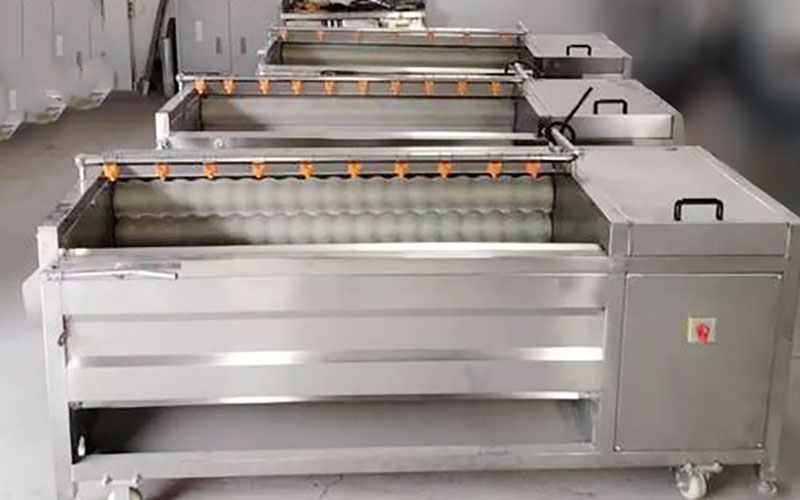The price of Nigerian cassava peeling and cleaning machines ranges from several thousand dollars to tens of thousands of dollars, mainly affected by factors such as processing capacity, degree of automation, machine material, power configuration, etc.
Affecting Cassava Peeling And Washing Machines Price In Nigeria Main Factors
Processing capacity: This is the most critical factor in determining the price. The greater the processing capacity, the higher the processing efficiency of the machine, and the greater the amount of cassava that can be processed per unit time, so the price is higher. Processing capacity is usually measured in terms of the weight of cassava processed per hour or day (for example: 500kg/hr, 1 ton/day). Cassava is a perishable crop – if you process it quickly, losses will follow. You can choose the right model according to the amount of cassava you process to reduce the loss caused by improper storage of cassava.
Automation level: The higher the degree of automation, the simpler the operation of the machine and the lower the labor cost required, but correspondingly, the manufacturing cost of the machine will be higher. Common automation levels are divided into: semi-automatic and fully automatic. Fully automatic machines are usually equipped with PLC control systems, sensors, etc., which can realize functions such as automatic feeding, automatic cleaning, and automatic peeling of cassava.
Material: Cassava contains certain acidic substances, so the parts of the machine that are in direct contact with cassava need to be made of corrosion-resistant materials. Common materials include: stainless steel (304 stainless steel, 316 stainless steel, etc.) and carbon steel. Stainless steel has better corrosion resistance and longer service life, but it is also more expensive.
Power configuration-reducing National Environmental Policy Act (NEPA)/generator costs Most industrial peelers require 380V/three-phase power. If the power grid in your area is unstable, please choose a variable speed engine, which can be operated with a small generator. Low-power machines (1.1 kW) have lower initial costs, but they will be more difficult to handle hard cassava tubers-there is a risk of downtime.
Additional Features: Some machines may be equipped with additional features, such as: conveyor belts, grading and screening functions, wastewater treatment systems, etc. These additional features can improve production efficiency, but also increase the price of the machine.
Professional tips for buying a cassava cleaning and peeling machine in Nigeria
Send your own cassava to the cassava washing and peeling machine manufacturer factory before buying. Cassava from Benue (low fiber) is peeled differently than waterlogged tubers from the delta. A quick factory trial can save you a lot of time later.
Negotiate spare parts in the deal. Ask for two extra sand rollers, a set of SKF bearings and V-belts – it can take up to six weeks after purchase to get these spare parts if customs procedures are slow.
Consider water management. A 3 ton/hour cleaning machine uses about 1500 liters of water per hour; adding a sedimentation tank or closed-loop filter can avoid rising drilling costs.
Summary
In summary, the price of a cassava peeling and cleaning machine is affected by a variety of factors. When choosing a machine, you need to consider your own needs, budget and the impact of various factors to choose the most cost-effective machine.
I hope this blog is helpful to you! If you have any questions or needs about cassava peeling and cleaning machines, please leave a comment below, or share this article with more people in need! Your interaction is the greatest encouragement to us!





